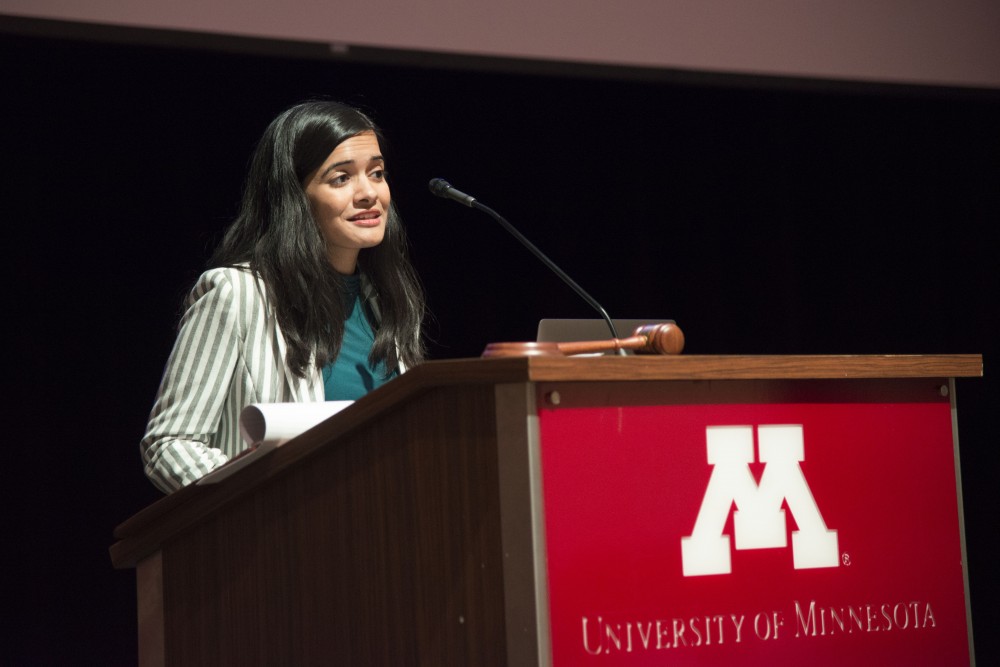In an effort to make forum meetings more diverse, the University of Minnesota’s undergraduate student government is developing a new outreach initiative to include more voices and improve student group representation.
Minnesota Student Association Outreach Director Nikil Badey started the initiative with an emphasis on inclusion in a time of political divisiveness.
“Our ideas might not match, but we really do need to come together in terms of community,” he said.
MSA has received feedback from certain groups that they do not feel represented, Badey said. MSA President Simran Mishra emphasized the importance of having diverse representation and making MSA accessible for groups who may not have the time or resources to commit to the biweekly forum meetings.
“I think it’s really, really important for student government leaders to not push what they think is important, what their priorities are, but rather what students want. And the best way we can do that is [by] having genuine relationships with diverse groups of students,” she said.
While many student groups have a designated MSA representative who attends meetings, some do not.
“We’re trying to make MSA more accessible to those groups,” Mishra said.
The initiative will implement an advisory board, which will actively reach out to groups that are not represented. The board aims to gain an understanding of issues that are important to various student organizations.
“When you’re an advocate for someone, that means you have to hear them out [and] give them a chance,” Badey said.
Badey said the logistics of the initiative were initially worked out last semester, but more work is being done to communicate with groups now. MSA is working to develop agreements that will define the relationship between MSA and individual groups.
The first phase of the initiative involved rounding up three main groups for potential involvement, Badey said, including college boards, Greek councils and the second-floor multicultural groups of Coffman Union.
Several Greek life groups, including the Multicultural Greek Council and the Interfraternity Council, are expected to join MSA in the initiative this spring. Gerry Weber, the president of the IFC, emphasized that many Greek organizations have been trying to shift their focus outward.
“We’re trying to find ways to branch more outside of our own community,” Weber said.
While Greek organizations have a history of working closely with student government, not all groups have had the same opportunity, which prompted the new outreach efforts.
“When you look at your student government, you want to know that you are being represented by someone that knows your ideals and experiences, and that’s something that we’re trying to work on,” Badey said.
He said he hopes to see the program grow and build a strong foundation that will last throughout elections and shifts in MSA governance. He stressed that better representation in the future will come from acknowledging MSA’s history.
“We’ve come a long way from the white, straight men to strong women of color [in power] … it cannot stop here. We have to keep on growing that foundation … that’s the only way we can represent the entire University.”








